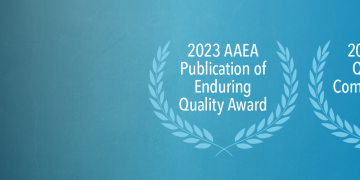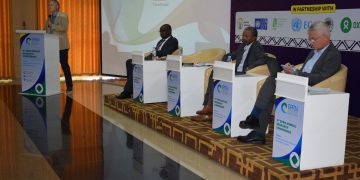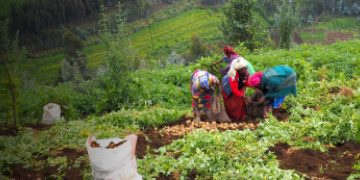Work on the implications of the Ukraine crisis on food systems and research on trade, food standards, and poverty recognized
Read More : HTTPS://WWW.IFPRI.ORG/NEWS-RELEASE/IFPRI-RESEARCHERS-RECEIVE-AAEA-2023-QUALITY-COMMUNICATION-AND-PUBLICATION-ENDURING
Boosting Economic Resilience to Economic Shocks: Insights from the 9th Economic Policy Research Network Annual Research Conference
An IFPRI-EPRN event- presentation, facilitation, and panel discussion June 9, 2023 Rwanda’s Vision 2050 articulates the bold development strategy of propelling the country from low to high-income status, by intensifying country’s ambitions towards self-reliance and competitiveness through a private sector led growth and transformation economic model. To achieve the Vision’s targets, there is a need […]
2023 GLOBAL FOOD POLICY REPORT RETHINKING FOOD CRISIS RESPONSES
2023 GLOBAL FOOD POLICY REPORT
RETHINKING FOOD CRISIS RESPONSES
With new evidence on what works, now is the time to rethink how we address food crises.
Lessons learned from the Livestock Master Plan and future investment priorities for animal resources development
Under PSTA4, the Rwandan government has set several growth targets for the sector, including increasing milk production from 785 million liters in 2018 to 1.5 billion liters by 2024, and increasing the national herd size from 1.5 million to 2.5 million by 2024. To achieve these targets, the government developed the 15-year livestock sector strategy that identified promising interventions and policies, and a five-year Livestock Master Plan (LMP, FY 2017/2018 to 2021/2022) that set out an investment roadmap to modernize the sector in line with the National Transformation Strategy and PSTA4
PUBLIC INVESTMENT PRIORITIES FOR RWANDA’S INCLUSIVE AGRICULTURAL TRANSFORMATION: EVIDENCE FROM RURAL INVESTMENT AND POLICY ANALYSIS MODELING
Public investment priorities for Rwanda’s inclusive agricultural transformation: Evidence from rural investment and policy analysis modeling Date: February 28,2022 Venue: Ubumwe Hotel, Kigali Time: 12:00pm to 1:30pm The challenging question is how to prioritize public expenditures across a broad portfolio of policies and programs. This prioritization process must address multiple development outcomes and be firmly […]
- « Previous Page
- 1
- 2
- 3
- 4
- 5
- …
- 14
- Next Page »




